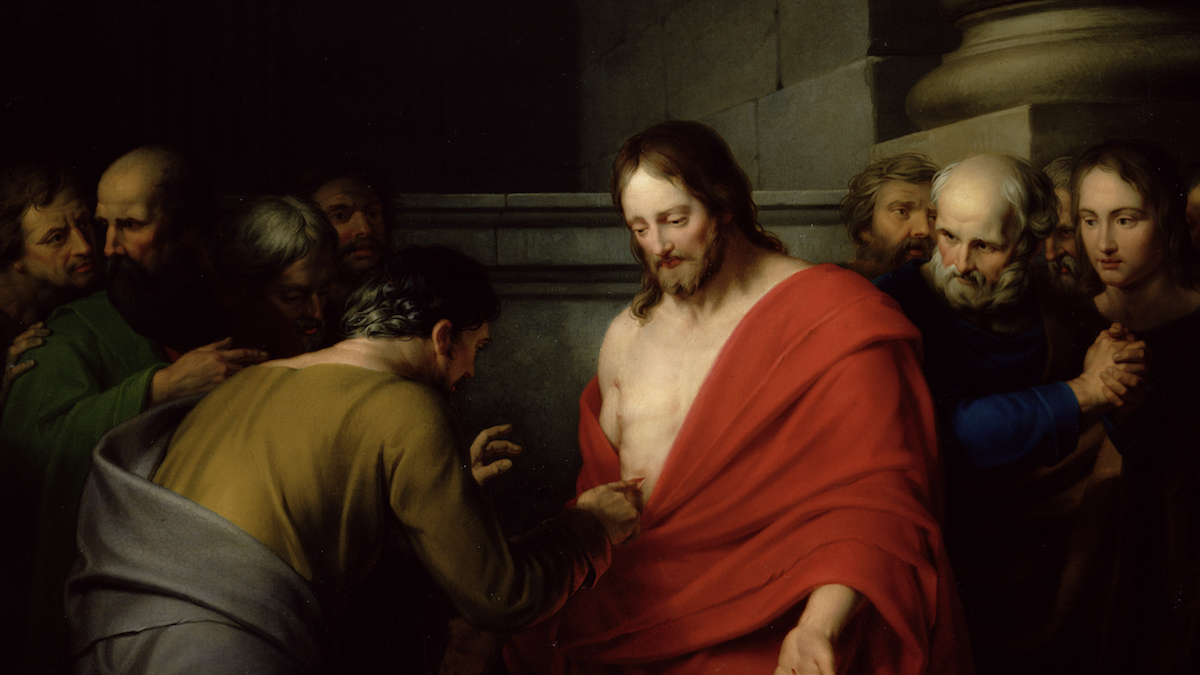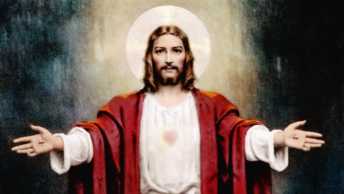On the evening of that first day of the week, when the doors were locked, where the disciples were, for fear of the Jews, Jesus came and stood in their midst and said to them, “Peace be with you.” (John 20:19)
The first thing that might strike us as relevant in this passage from our gospel passage for the Second Sunday of Easter could be that the doors of the Upper Room were locked.
Yet also in this environment of defeatism, fear and failure, the Risen Lord says: “Peace be with you.” It is a greeting repeated more than once and, thus, becoming almost an order given to convince us to change course, to regroup and to try again. Or, even better, “Peace be with you” should be considered a very special gift, unique and personal, from the Risen Lord to each one of those who still have in their mouths the unpleasant taste of failure and anguish and have stifling fear in their hearts. And, for sure, what is most remarkable in this repeated greeting is the fact that it was given, first, to those thoroughly frightened eleven men locked in the Upper Room and now to us, by the Risen Lord who insists that we touch his fresh wounds just as Thomas touched them a long time ago.
But now that the Body of Christ is so big as to include every believer and every person of good will does the infinite mercy of God keep manifesting itself as in the beginning? Before we attempt to answer this question, we should take another look at this Sunday’s first reading (Acts 4:32-35). The first impression is that we are looking at the perfect picture of how the Body of Christ was like when still comprising only a few communities of believers in and around Jerusalem. However, can we assume that the gift of Jesus’ peace was making them so of one accord and love-filled?
Truth be told, that was hardly the case. If we continue reading in the Acts of the Apostles, we find out that even back then there were divisions, contentions, discords, and even serious deceptions. So, what this passage from Acts of the Apostles offers us is not a snapshot of any community but, rather, a tremendous display of divine mercy lifting us from the depths of our real situation and inviting us to become the ideal community which his divine grace desires us to become. That ideal community in any age, ours included, would be such because of God’s infinite mercy and in virtue of the fullness of peace given it by the Risen Lord, in the power of his Spirit.
This realization should, then, provide us with enough courage to look at the wounds present on the Body of Christ, on the Church, that cannot be hidden or ignored. Of course, Christ the Head of the Body, has only wounds caused by infinite love and by boundless mercy; but on his Body, on the Church, we notice both wounds caused by love and mercy and, alas, those caused by human weaknesses and sin.
On this subject of wounds of various seriousness and depth present on the Body, which is the Church, let me tell you what I notice as I look at your faces and hands when you walk up to receive the Body of Christ in the form of bread. I find them to be a partial revelation of the wounds that you carry around.
In the eyes of some I can read exhaustion, frustration, sadness, fear, resignation as well as joy, longing, and hope. In the hands of some, I can see scars, calluses, deformations caused by arthritis, and other painful conditions, still in others, signs of hard, honest work, humble service and generous self-giving at considerable personal inconvenience. As I look at them, although ever so briefly, I wonder about those deeper scars that some manage to hide from everyone so that they can show them to Jesus, alone, with the certainty that he will be moved to compassion and dress them ever so gently.
Naturally, some are the self-inflicted wounds of sins, often combined with the wounds that are present as the result of someone else’s sins.
It becomes evident, then, that the peace of Christ has made us better, but not yet fully restored to the ideal condition he desires. It becomes evident as well that, while we are still on this earth, there are some wounds so serious that our weak faith cannot yet capitalize adequately on Christ’s peace and on the power of his Spirit. Consequently, we continue to be apprehensive, worried, and less involved with our contribution to the good of the Body of Christ.
Now, confronted and hurt by these and other wounds, should we keep “our doors locked?” Should we allow fear to stop us or slow us down?
Today’s repeated gift of peace should make us realize that the Lord has breathed in us his Spirit. It is the Spirit who empowers us to deal adequately and effectively with sin and failures. It is in the Spirit that we should keep working to improve our Community of Faith.
We can be confident; we can be certain that the wounds which we share as a Community of Faith can become a source of pride, boldness and of firm trust about our future, lasting victory in the Risen Lord. And, furthermore, we cannot forget that the Lord’s mercy is infinite. He will come back as many times as needed as he came back for Thomas, because he desires so ardently for all of us to rejoice and to remain actively involved in making our community one that is a Community after his own heart.








